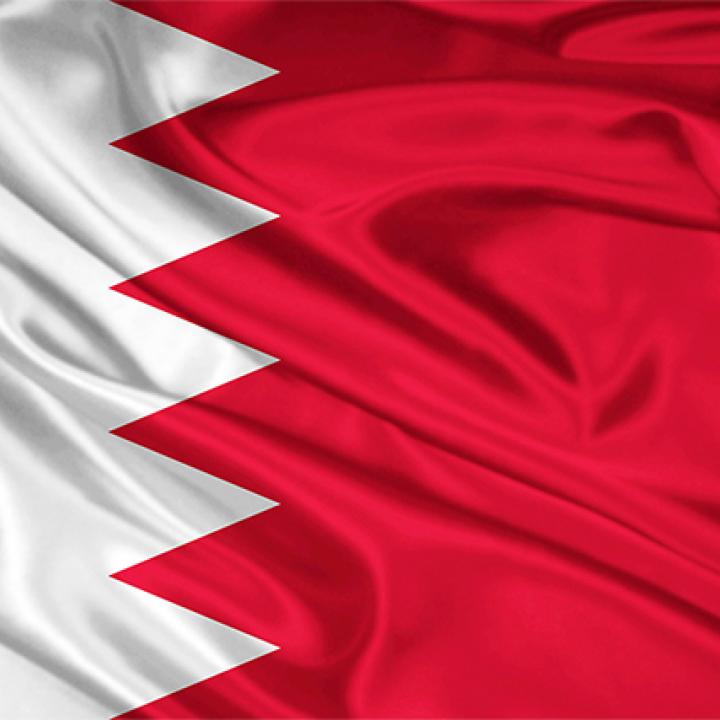

The slow implementation of reforms is casting doubt on the validity of forthcoming elections.
Since 2011, Bahrain has been trying to extricate itself from a negotiating deadlock between leaders of the majority Shiite Muslim community and the ruling Sunni al-Khalifa family. When local security forces, later backed by Saudi and UAE reinforcements, cracked down on demonstrations more than three years ago, Shiite members of parliament resigned in protest. Reconciliation has since been hampered by frequent protests and background violence, with attacks on police countered by arrests and beatings.
On September 18, local media reported that Crown Prince Salman, perceived as a conciliator, had sent a letter to his father, King Hamad, outlining areas of "common ground" in talks on political reforms. Five core elements were listed: redistricting to ensure greater representation; legislative changes to allow parliament to question ministers, including the prime minister; parliamentary approval of the cabinet; improvement in judicial standards and judiciary independence; and security-sector changes, including new codes of conduct for the security forces. When the details will be implemented is unclear; on September 21, the government's spokesman said it would happen through royal decrees issued by the king. Also unclear is whether the changes would take effect before national elections to be held in early November on a date to be announced soon.
In the absence of actual reforms, the crown prince's efforts to clarify the issues could simply exacerbate the country's divisions. On September 19, Sheikh Ali Salman, the leader of the main al-Wefaq opposition faction, told a large group of demonstrators that the proposals did not represent "the will of the people" and the elections would be "illegitimate." Some protestors carried signs calling for an electoral boycott. Previously, opposition leaders had called for reforms that might have allowed Shiite factions to achieve parity with Sunni groups and independents in the forty-member assembly. As currently districted, the Shiite population is unlikely to ever secure a parliamentary majority.
King Hamad, who is widely perceived as vacillating, welcomed the crown prince's "framework" plan and complimented him on his patriotism, but many Bahrainis and foreign observers were likely more interested in the prime minister's response. Sheikh Khalifa, the king's uncle, has held the premiership since 1970 -- a few months after the crown prince was born -- and is renowned for his political experience. Yet he has come to be perceived as the main protector of royal hardliners who view the Shiites as vulnerable to Iranian influence and regard concessions to them as signs of weakness. As if on cue, the September 20 edition of the government-controlled Gulf Daily News carried reports of Sheikh Khalifa praising the king for his leadership of the country's development but with no mention of the proposed political reforms. The prime minister dominated the paper's front page again the next day, this time with a statement condemning terrorism.
The United States has a clear interest in Bahrain's future because the island hosts the headquarters of the Fifth Fleet, which currently protects shipping lanes in the Persian Gulf and conducts antipiracy patrols near the Horn of Africa. On September 19, Crown Prince Salman met with U.S. Ambassador Thomas Krajeski and Fifth Fleet commander Vice Admiral John Miller. A local media report described the meeting as a discussion of bilateral counterterrorism cooperation, but political reform was probably also discussed. Ambassador Krajeski has been criticized in the past by Bahraini media for his involvement in the latter issue.
The U.S.-Bahrain relationship is challenging: one day into a July visit to the island, Assistant Secretary of State for Democracy, Human Rights, and Labor Tom Malinowski was expelled after he angered the king by meeting with opposition figures before government officials. And earlier this month, an unnamed senior Obama administration official spoke of Bahrain's "stupid and self-defeating moves" after a human rights activist was arrested upon arriving in the country. The activist was released last week before the crown prince's framework was announced, but on September 19, a Bahraini court sentenced fourteen young Shiites to life terms for their involvement in violent clashes during which four policemen were injured, including a Pakistani recruit who lost a leg.
The opposition is no doubt frustrated at being offered the prospect of political reform but only after elections in which their hope of victory is nil. A large-scale boycott would be embarrassing for the government, yet delaying the vote until reforms are enacted is probably not a realistic option. Under the constitution, polls have to be held before December 15 unless the king extends the terms of current members of parliament by two years. Perhaps the ominous presence of the "Islamic State"/ISIS in Syria and Iraq -- which is a danger to Bahrain's Shiites and ruling family alike -- will avert a major crisis at home.
Simon Henderson is the Baker Fellow and director of the Gulf and Energy Policy Program at The Washington Institute.



